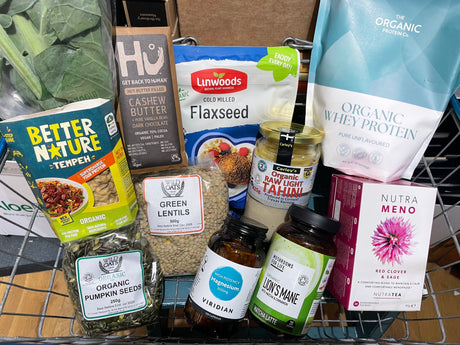Why is women's health important?
Over the course of their lives, many women experience high emotional and physical demands on their bodies.
Compared to men women’s hormones cycle throughout the month, meaning our energy, motivation and creativity will change depending on the day we are in our cycle. This is normal and healthy, but we can often feel unsupported by society and work expectations get through our to do list and achieve the same amount of productive every day.
Unfortunately, recent research has suggested that many women feel their pain is not taken seriously or they can feel that their symptoms are ignored or diminished when going to visit their GP.
What does magnesium do to a female body?
Specific benefits of magnesium for women health are that it helps with hormonal balance, balancing blood sugar and stress support. Because of this I often recommend magnesium rich foods and supplements for clients suffering with premenstrual syndrome (PMS) and with Polycystic Ovary Syndrome (PCOS).
Why do women need magnesium supplement?
The mineral Magnesium plays a vital role in supporting over 300 different processes in the body. It is essential for energy production in our cells, glucose metabolism, blood clotting, and the development of strong bones and teeth.
Magnesium also contributes to sleep and mood support, as it acts as a cofactor in synthesizing the calming neurotransmitter GABA and is involved in the production of serotonin, a neurotransmitter that helps regulate mood.
What type of magnesium is best for women?
It depends on your symptoms and life circumstances (talk to an advisor in store to learn more!).
Certain factors may increase the need for magnesium supplementation, such as chronic stress, gut issues that affect magnesium absorption, or an unhealthy diet with high processed food intake.
Here are three of my favourite forms of Magnesium:
- Magnesium Glycinate - Best for promoting sleep and reducing anxiety.
- Magnesium Citrate - Can help relieve constipation.
- Magnesium Taurate - Beneficial for cardiovascular issues and muscle repair.
How much magnesium for women's health?
The recommended daily dose of magnesium varies depending on age and life stage, generally ranging from 310 to 320mg per day. Pregnant women have higher magnesium requirements.
If you are on blood pressure medication, consult your GP before incorporating a magnesium supplement, as it can lower blood pressure.
Should women take magnesium every day?
It depends if you have a low intake in your diet or have specific symptoms that require support such as headaches, are under stress or have sleep difficulties.
You can also focus on improving the quality of your diet and include plenty of magnesium-rich foods such as dark green leafy vegetables, nuts and seeds, whole grains, and dark chocolate.
What are the signs of low magnesium?
Signs of low magnesium may include feeling tired and having difficulty sleeping, experiencing anxiety or low mood, suffering from muscle cramps, spasms, or twitches, having headaches, and palpitations.
The benefits of Holy Basil
Sacred Herb and is highly regarded in Ayurvedic Medicine to this day.
- Modern research on this adaptogenic Herb confirms Holy Basil/Tulsi’s ability to help reduce Stress- Related Anxiety & enhance Stamina and adaptability.
- Recent studies have related Holy basil’s Anti-stress effects to its ability to inhibit Cortisol release.
By Catherine McClory, Resident Nutritional Therapist at Wild Oats



